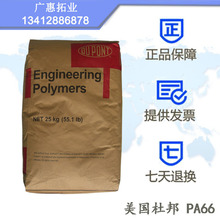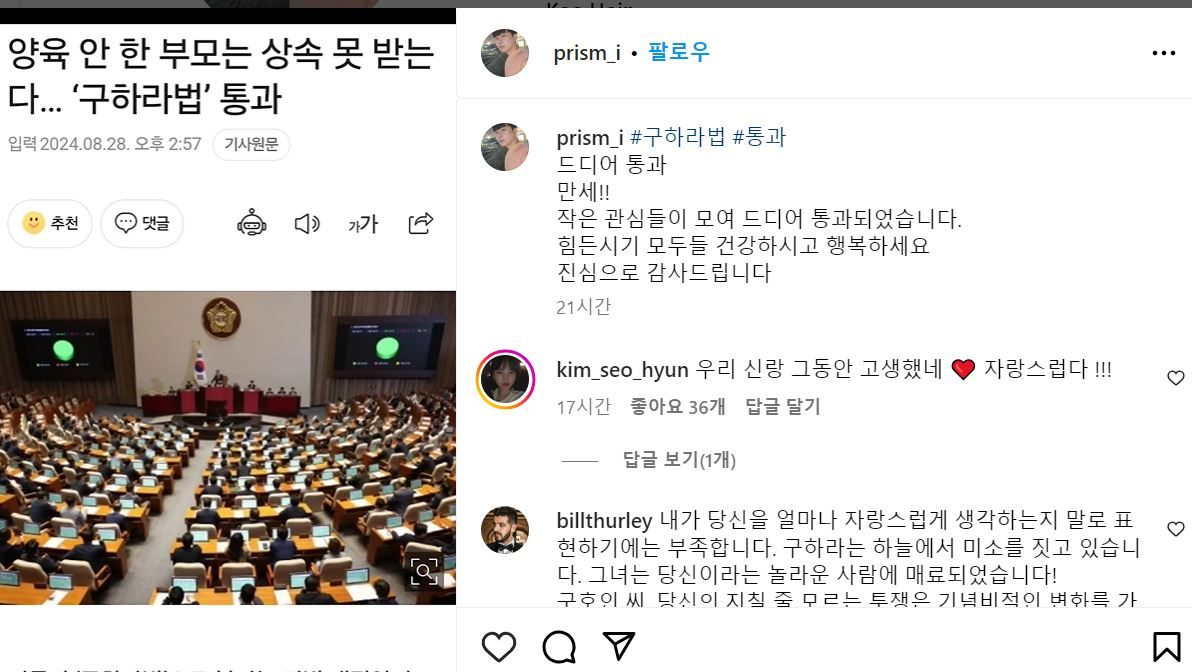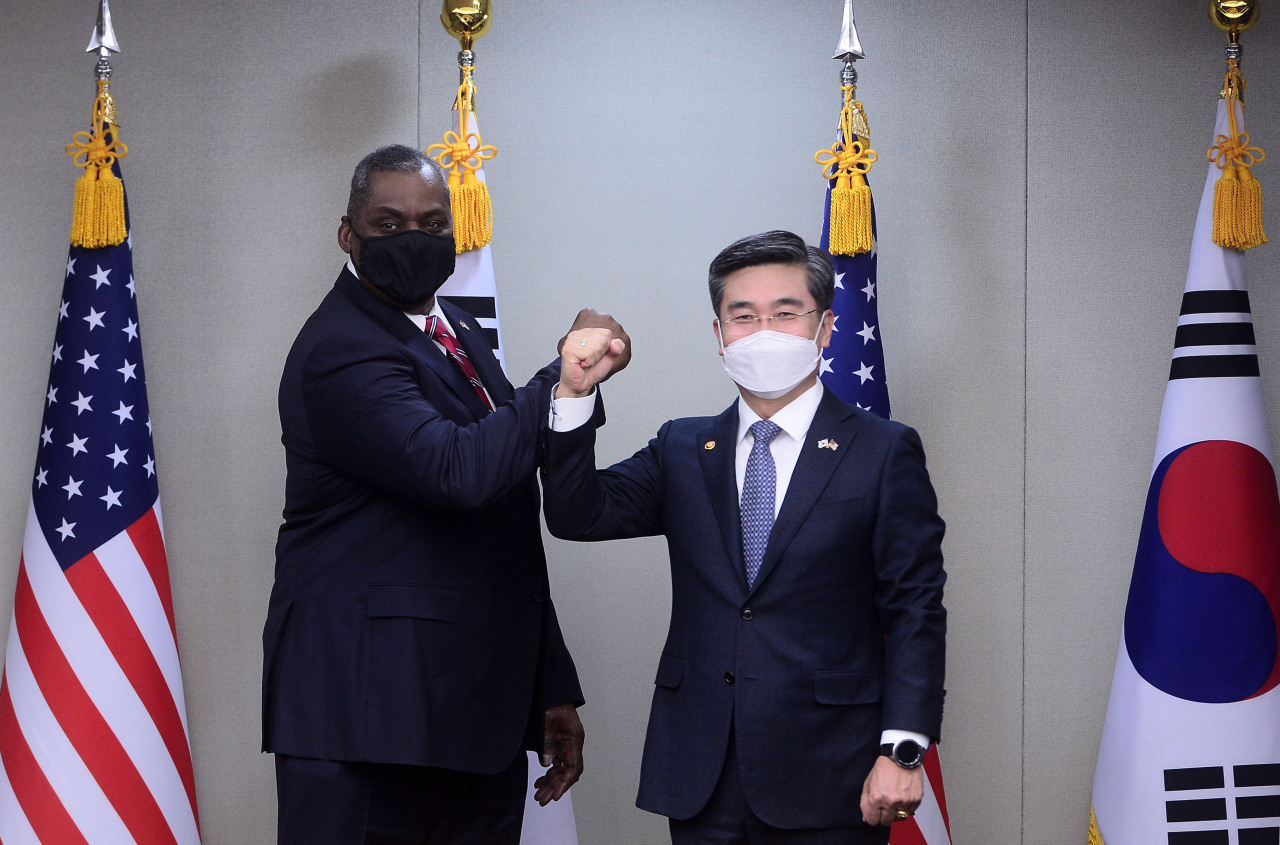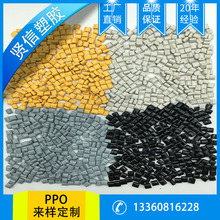Defector soldier reveals health conditions in N. Korea
2024-09-21 19:51:48 [资讯] 来源:CCTV News Channel live broadcast
 |
| Trauma surgeon Lee Cook-jong shows images of parasitic worms found in a wounded North Korean soldier at Ajou University Hospital in Suwon, Gyeonggi Province, Nov. 15. The soldier was shot several times during his escape to the South Korean side of the Joint Security Area before undergoing emergency surgery at the hospital. / Yonhap |
By Yi Whan-woo
The defection of a North Korean soldier at the Joint Security Area (JSA) in November is raising awareness of health conditions inside the impoverished regime after parasitic worms and a chronic liver infection were found in the solider.
The finding came unexpectedly after the soldier, Oh Chung-sung, 25, was shot by his comrades during his escape to the Southern side of the JSA , was brought to safety by South Korean and U.S. soldiers and underwent emergency surgery.
Doctors found and removed several types of intestinal parasitic worms, some up to 27 centimeters long, according to Lee Cook-jong, the trauma surgeon who operated on Oh at Ajou University Hospital.
Lee said that in 20 years as a surgeon he had never seen such a case except in a medical textbook.
Lee said the soldier hepatitis B as well, which was a serious risk factor for liver cancer.
Oh' s stomach also contained raw corn kernels, which came as a surprise because North Korea was believed to assign soldiers with elite backgrounds to the JSA and treat them well.
Oh's father is reportedly a high-ranking officer in the military police, according to intelligence sources.
Since the soldier's health problems were revealed, calls have been growing in Seoul to bolster medical support for Pyongyang to help improve health conditions in the rogue state.
Experts claim that such efforts will be critical in "narrowing the gap" between the two Koreas on sanitation and other public health issues and prevent diseases spreading if the Korean Peninsula is united.
During a CNN interview, Seoul National University College of Medicine professor Choi Min-ho said poor sanitary conditions and use of human waste as fertilizer on crops were responsible for parasitic cysts in North Korea.
"It is a vicious cycle that is hard to stop in North Korea," he said. "They are so desperate to make ends meet that they cannot take proper preventive measures."
A defector-turned-journalist voiced a similar view, pointing out that she and her fellow residents in a rural village in North Korea pumped up underground water and drank it, even though it was believed to be polluted by feces from public toilets.
"There was no sewage facility and the feces from the toilets went directly underground, meaning the water is getting mixed with those feces," she said.
She said the village chief had said not to worry about pollution because the water was 15 meters below the ground and therefore "self-purified."
She said a friend in the village told her recently in a secret phone call that the villagers were "still drinking that water."
 |
| The North Korean soldier who defected on Nov. 13 at the JSA waits for emergency surgery at Ajou University Hospital in Suwon, Gyeonggi Province. / Yonhap |
Some sources said North Korean elementary and secondary students had to dry human feces in spring to be used as fertilizer.
Many dried the feces with bare hands, which made the students vulnerable to multiple intestinal worms, including roundworms, threadworms and hookworms.
"Moreover, the students cannot wash their hands regularly due to a water shortage," a source said. "The students are provided with anti-parasite medication twice a year, but it does not help much because they handle the medicine with their hands unwashed."
Kang Chol-hwan, a defector-turned-anti-Pyongyang activist, said every household was given a medicine named "Santonin," when he was in North Korea in the early 1990s.
But the black syrup could cause liver damage if taken in the long term, so developed countries rarely used it, according to Kang.
"We had to take it because we had nothing else to take," Kang said. "And it was gross to see intestinal worms actually coming out of people's mouths after we took the syrup.
"I was shocked that the North soldier at the JSA still had those worms because the medicine has been used for more than two decades," he added.
Meanwhile, North Korea has been beefing up security at the JSA since Oh defected on Nov. 13.
Soldiers dug up a deep trench in the area where Oh, a driver, had dashed across the military demarcation line after his jeep got stuck in a small ditch.
Two trees had also been planted in the small space between the ditch and the line with the South.
(责任编辑:资讯)
相关内容
 How much for Oasis tickets? Fans joke about splurging on reunion shows
How much for Oasis tickets? Fans joke about splurging on reunion shows Trump says Orrin Hatch told him he was the best president in history but the senator denies it.
Trump says Orrin Hatch told him he was the best president in history but the senator denies it. Trump may reduce focus on North Korea in election year
Trump may reduce focus on North Korea in election year Woman claims restaurant review in Washington Post exposed husband's affair
Woman claims restaurant review in Washington Post exposed husband's affair Deceased K
Deceased K
- The local version of Project 2025 is already causing devastation.
- “天姿国乐”《国乐丹青》新年音乐会在雅奏响
- Today in Conservative Media: A real constitutional crisis is if Congress tries to protect Mueller.
- 做好本职工作 努力建设全民科普
- We Asked GPT Some Tech Questions, Can You Tell Which Answers Are Human?
- 遗嘱形式上存在严重缺陷 不具有法律效力
- FBI denounces Nunes memo in statement.
- Krejcikova pays tribute to Novotna after French Open triumph
推荐文章
-
Best Home Depot Labor Day sale deals
 Labor Day weekend is almost here, and retailers like Home Depot have already rolled out their Labor
...[详细]
Labor Day weekend is almost here, and retailers like Home Depot have already rolled out their Labor
...[详细]
-
[News Focus] Foreign workers still face COVID
![[News Focus] Foreign workers still face COVID](http://res.heraldm.com/content/image/2021/03/22/20210322000612_0.jpg) Foreign workers are in line last week at a temporary testing center in Ansan, Gyeonggi Province, to
...[详细]
Foreign workers are in line last week at a temporary testing center in Ansan, Gyeonggi Province, to
...[详细]
-
Boomers killed the Facebook status
 Few leisure activities bring boomers more satisfaction than complaining about millennials, but using
...[详细]
Few leisure activities bring boomers more satisfaction than complaining about millennials, but using
...[详细]
-
US slaps sanctions over North Korea overseas workers
 The United States on Tuesday imposed sanctions on two companies for exploiting North Korean overseas
...[详细]
The United States on Tuesday imposed sanctions on two companies for exploiting North Korean overseas
...[详细]
-
Keurig K Mini deal — get $30 off at Target
 GET $30 OFF:As of Aug 28, you can snag a Keurig K Mini single-serve coffee maker for just $59.99, do
...[详细]
GET $30 OFF:As of Aug 28, you can snag a Keurig K Mini single-serve coffee maker for just $59.99, do
...[详细]
-
 雅安日报/北纬网讯14日,市人大常委会副主任刘平一行对中心城区餐饮油烟治理情况进行调研指导,强调相关部门要进一步巩固餐饮油烟的治理成果,切实建立长效管理机制。调研组先后查看了市行政中心机关食堂,解放路
...[详细]
雅安日报/北纬网讯14日,市人大常委会副主任刘平一行对中心城区餐饮油烟治理情况进行调研指导,强调相关部门要进一步巩固餐饮油烟的治理成果,切实建立长效管理机制。调研组先后查看了市行政中心机关食堂,解放路
...[详细]
-
Former FBI chief Comey blasts Republicans over Nunes memo: “That’s it?”
 Former FBI Director James Comey sharply criticized Republicans, and by extension President Donald Tr
...[详细]
Former FBI Director James Comey sharply criticized Republicans, and by extension President Donald Tr
...[详细]
-
S. Korea, US set to wrap up springtime combined exercise amid COVID
 South Korean Defense Minister Suh Wook (R) and his US counterpart, Lloyd Austin, pose for a photo pr
...[详细]
South Korean Defense Minister Suh Wook (R) and his US counterpart, Lloyd Austin, pose for a photo pr
...[详细]
-
Travel Back in Time and Uncover Old
 Oozing with Old-World charm, Boston’s Beacon Hill is a time-traveler’s dream. Stay in a hotel that o
...[详细]
Oozing with Old-World charm, Boston’s Beacon Hill is a time-traveler’s dream. Stay in a hotel that o
...[详细]
-
 雅安日报/北纬网讯14日,市人大常委会副主任刘平一行对中心城区餐饮油烟治理情况进行调研指导,强调相关部门要进一步巩固餐饮油烟的治理成果,切实建立长效管理机制。调研组先后查看了市行政中心机关食堂,解放路
...[详细]
雅安日报/北纬网讯14日,市人大常委会副主任刘平一行对中心城区餐饮油烟治理情况进行调研指导,强调相关部门要进一步巩固餐饮油烟的治理成果,切实建立长效管理机制。调研组先后查看了市行政中心机关食堂,解放路
...[详细]
热点阅读
随机内容
- 10 Big Misconceptions About Computer Hardware
- Why Trump trying to fire Mueller might not help an obstruction case.
- Sterling, Henderson set for MBEs
- Rashford ready to put team first for England success at Euros
- 一针一线串起两代人的传承故事
- S. Korea not to co
- California atmospheric rivers to intensify, make billion
